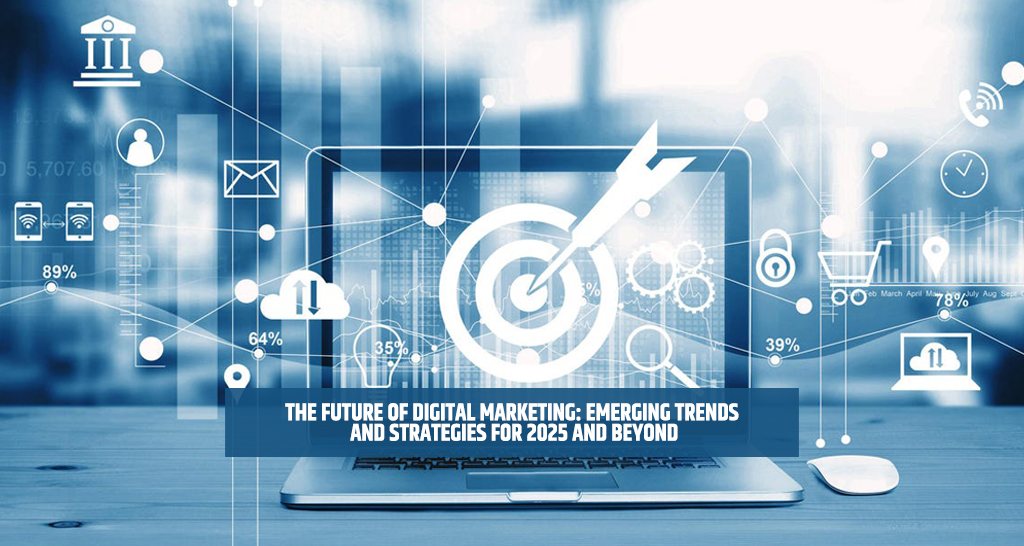As digital marketing progresses swiftly, companies are exploring creative methods to connect with customers, foster brand loyalty, and enhance sales. The rapid advancement of technology, coupled with evolving consumer expectations, brings distinct challenges and opportunities for marketers. The digital marketing landscape in 2025 and beyond will be characterized by various emerging trends and strategies that leverage developments in artificial intelligence, data analytics, and automation. Here’s a closer look at the key factors shaping the future of digital marketing.
Artificial Intelligence and Automation
Artificial Intelligence (AI) is currently reshaping the landscape of digital marketing, and its influence is expected to grow significantly as we near 2025. AI technologies empower marketers to develop highly customized content, refine advertising strategies, and automate routine tasks. Among the most promising uses of AI in marketing are chatbots and conversational AI, which enable companies to deliver round-the-clock customer support, offer personalized recommendations, and improve user experience in real-time.
By the year 2025, artificial intelligence will be intricately integrated into all facets of digital marketing, encompassing everything from automated content creation to predictive analytics. Marketers will utilize machine learning algorithms to scrutinize extensive consumer data, allowing them to forecast customer behavior and develop highly targeted marketing campaigns. Furthermore, AI-driven automation tools will enhance advertising expenditures, oversee social media management, and tailor customer engagement, all in real-time .
Voice Search and Conversational Marketing
The emergence of voice-activated assistants, including Amazon’s Alexa, Google Assistant, and Apple’s Siri, represents a significant transformation in consumer engagement with the internet. By 2025, it is anticipated that voice search will gain even greater prominence, necessitating businesses enhance their content to accommodate voice inquiries. Consumers are increasingly utilizing voice search for various tasks, ranging from seeking recommendations to completing purchases.Conversational marketing, characterized by immediate, individualized exchanges between brands and consumers, is poised to become increasingly significant. Brands are expected to leverage messaging applications, social media channels, and AI-powered tools to craft personalized experiences that resemble authentic dialogues.
Augmented Reality (AR) and Virtual Reality (VR)
Augmented Reality (AR) and Virtual Reality (VR) have transitioned from being mere futuristic ideas to becoming integral components of contemporary digital marketing strategies. With advancements in technology making these tools more cost-effective and widely available, marketers are increasingly able to utilize AR and VR to craft engaging experiences that not only captivate consumers but also foster stronger emotional ties with brands.
Beauty brands such as L’Oreal and Sephora have implemented AR to facilitate virtual makeup trials for their customers. Similarly, furniture retailers like IKEA utilize AR technology to help consumers envision how items will appear in their living spaces prior to making a purchase. The advancement of these technologies is expected to progress further, offering innovative methods for customers to engage with products before their acquisition.
Privacy and Data Security ConcernsThe increasing prominence of data-driven marketing has elevated consumer privacy to a critical concern. In light of escalating apprehensions regarding data breaches and surveillance, governments globally are enacting more stringent data protection legislation, including the European Union’s General Data Protection Regulation (GDPR) and California’s Consumer Privacy Act (CCPA). By the year 2025, it is anticipated that additional regulations will be introduced, compelling brands to implement more transparent and secure methodologies for managing customer data.
As consumers increasingly recognize the significance of data usage, trust is emerging as a pivotal element in fostering brand loyalty. Organizations that emphasize privacy and maintain transparency regarding their data collection and utilization practices are likely to secure a competitive advantage in the market.
Sustainability and Ethical Marketing
As sustainability emerges as a pivotal topic in international discussions, consumers are progressively seeking brands that align with their values. By the year 2025, it will be essential for businesses to emphasize environmental and social responsibility within their marketing approaches. Ethical marketing, which prioritizes transparency, sustainability, and corporate social responsibility (CSR), will serve as a crucial differentiator for brands aiming to engage socially conscious consumers.
Companies that dedicate themselves to sustainability initiatives and genuinely convey their efforts will not only cultivate consumer loyalty but will also gain from the increasing trend of ethical consumerism. By minimizing carbon emissions and endorsing social causes, businesses must present their initiatives in a manner that connects with their intended audience.
Video Marketing and Interactive Content
Video marketing has seen a significant surge in popularity in recent years, a trend that is anticipated to intensify shortly. Projections indicate that by 2025, video content will account for over 80 percent of all internet traffic. The emergence of platforms such as TikTok, YouTube, and Instagram Reels suggests that short-form video content will remain at the forefront. Furthermore, interactive video elements, including polls, quizzes, and clickable features, are expected to play a crucial role in digital marketing strategies.Video serves as a highly impactful medium for narrative expression, with consumers progressively desiring content that is both entertaining and interactive. The emergence of live streaming, which allows brands to engage with audiences in real-time, is poised to significantly enhance the connection between brands and their clientele.
Conclusion
The landscape of digital marketing is poised for remarkable transformations, propelled by technological innovations and evolving consumer demands. As we approach 2025 and the years that follow, it will be essential for businesses to remain adaptable and to integrate new trends such as artificial intelligence, voice search, augmented and virtual reality, data privacy, sustainability, and interactive video. By implementing these forward-thinking strategies, marketers can not only maintain a competitive edge but also foster significant and enduring connections with their customers in a progressively challenging digital environment.







